Love that feels like home, loss that shakes the soul, and the long journey to healing; these are the heartbeats of Esther Okuru’s story. In this deeply personal conversation, Esther opens up about her late husband, Tobi, and the beautiful yet brief love they shared, as captured in her book What Love Left Unfinished. Her words are simple, heartfelt, and open as she shares from a place of raw vulnerability, the deep pain of loss and the quiet process of healing.
Can you briefly introduce yourself?
Hi, my name is Esther Okuru. I’m a lawyer, a corporate counsel, and also a writer.
Let’s go back to the beginning. How did you and Tobi meet, and what was it about him that stood out to you right from the start?
I’m tempted to say, just read the book! But to be honest, we met at a mutual friend’s get-together, nothing grand. There was just something about him. It was like an ease, he felt like home.
There was a calm, grounded energy about him. In our conversations, he was fully present in the room. Even though the whole place was loud, he was right there, and it felt like he really saw me. That stood out. In a space where people were performing or trying to impress, Tobi wasn’t. He was just Tobi.
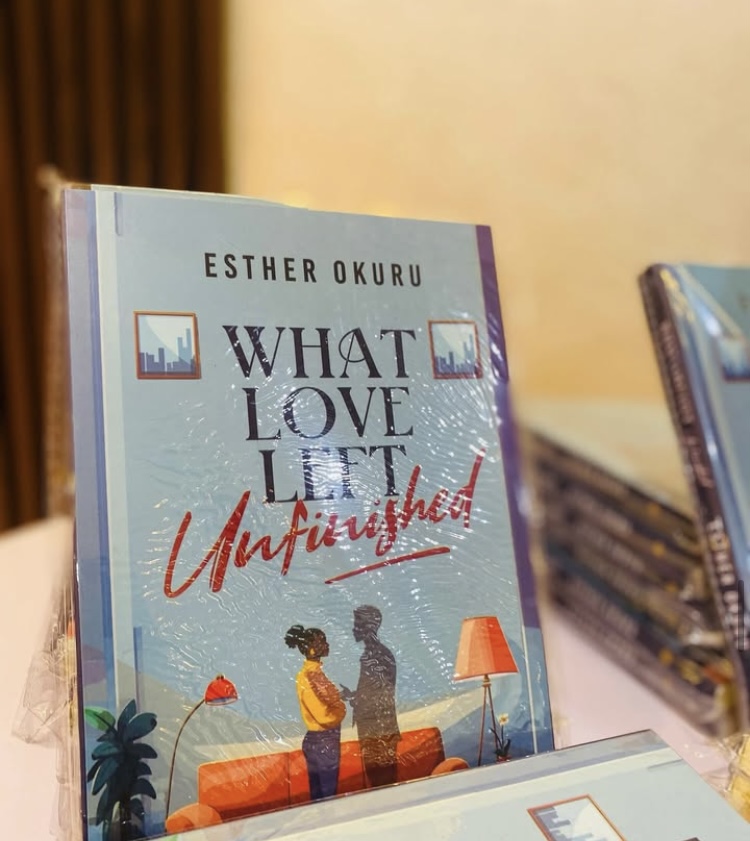
You’ve described your love story as beautiful and rare. What made your relationship with Tobi so special?
It’s honestly hard to put into words. We just fit. But deeper than that, there was a very deep sense of safety between us. I could let my guard down completely and just be Esther with him.
We talked about everything—our faith, dreams, fears, and even the most random things. Sometimes we’d be on the phone in complete silence, and even in that, there was connection. He made me feel like I was enough, just as I was. It was the kind of love that was uncomplicated, deep, and rare.
What was the season of planning your wedding and starting a new life together like?
That period was a mix of everything—excitement, stress, laughter, sometimes chaos. Two people from different backgrounds coming together to become one, there were bound to be differences. It wasn’t chaotic in a bad way; it was just real.
We weren’t just planning a wedding, we were dreaming out loud and planning a life. I remember one day, a few weeks before the wedding, his family sent us money to buy things to start our life together. He called me on video while shopping for a mattress. That moment, buying the mattress we would sleep on together, was so joyful.
Looking back, we were so focused on forever. It was a beautiful, exciting, and stressful journey.
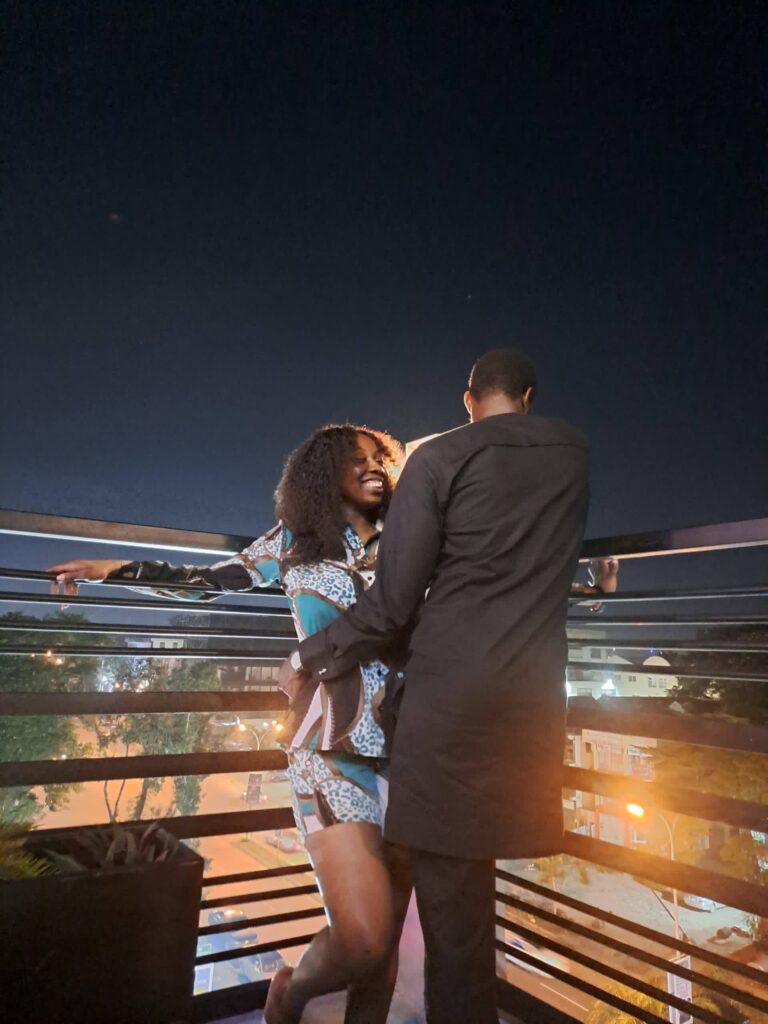
Losing Tobi so soon after your wedding is unimaginable. What were those first few days and weeks like emotionally for you?
It’s impossible to put into words, but I’ll try. Everything felt unreal. Breaking the news didn’t make sense. I kept thinking, no, this is not possible. For a moment, I believed he would just come back and say, “Ta-da, it was a joke.” But it kept hitting me, more and more, that he was really gone.
I remember that first night of not speaking to Tobi in 24 hours. I felt like I was losing my mind. Grief is physical. My chest felt like it was caving in. Breathing was hard. I was numb and in pain at the same time. The silence was deafening.
That period was one of the hardest things I’ve ever experienced. It’s not something I would wish on even my worst enemy.
How did you begin to find light again while in so much pain?
Honestly, I can’t pinpoint a single moment when I began to regain myself. Grief isn’t linear. One moment you feel better, and the next you’re on the floor again.
But slowly, I started to find little pockets of light, tiny moments of joy here and there. I remembered something Tobi used to say, reflecting my own words back to me: “Esther, nothing can steal your joy. Nothing should steal your joy.” Sometimes, just remembering that helped me smile and get up again.
I didn’t force healing, and I didn’t take on pressure from people telling me what I “should” do. I listened respectfully, but ultimately I did what was best for me. Some days, I tried to reach out to people again. It took effort to care about others because for a while, I just couldn’t.
Writing helped too. I’ve been journaling for eight years, and I didn’t stop after Tobi died. Every day, I wrote about how I felt. That became a safe space to process the storm inside me.
Was it difficult being so vulnerable on the pages, especially knowing that this was your real life, not fiction?
Yes, yes, it was. I’m not even going to lie. I questioned myself a lot. Should I share this? Should I not? Is this too much? I reminded myself that real stories help people.
Even if it was just one person who felt less alone in their grief because I dared to be vulnerable and honest, then the discomfort was worth it. I knew how my words resonated with people. The number of emails I received showed me that. People would say, “You’re inspiring me.”
I want someone to pick up my book and say, “If this thing didn’t kill Esther, it won’t kill me either.” I want people to feel seen. So yes, even if it was just for one person, that kept me going.
Were there moments you had to stop writing because it became too emotional? How did you deal with those moments?
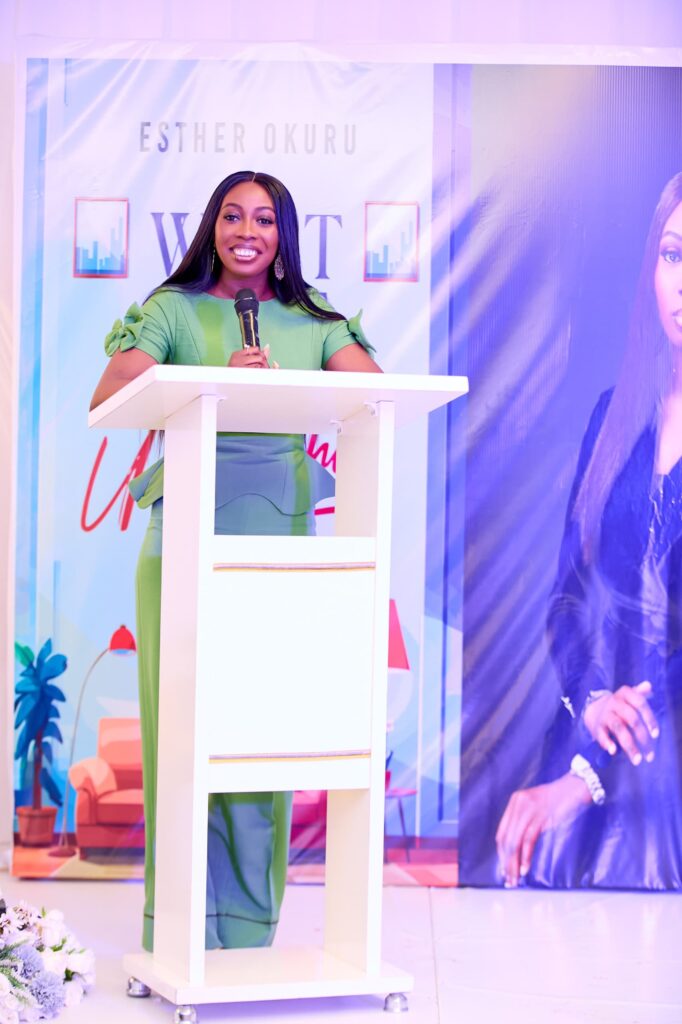
If you’ve read my book, or in case you haven’t, it’s written in three parts. There’s the happy part, the love story, and then the not-so-happy part.
Writing about the love was beautiful. I mean, who doesn’t love a good love story? It was nice to relive those memories, but it was also tricky. When I had to write the difficult parts, it was tough. There were times I’d start writing, then I’d have to stop. I’d go back to bed, cry, scream.
Some chapters took days. Some took weeks. Others took just a few hours. I had to learn to pause without feeling guilty, and cry when I needed to. I learned to talk out loud. Sometimes I’d even send voice notes to Tobi, whether he could hear me or not. I’d just throw them out there. And when I felt ready, I’d go back to my words and start again.
There was no manual. I just did me like I always do.
I noticed through your storytelling that Tobi’s presence was so vivid. What does it mean to you to keep his memory alive this way?
It means everything. Tobi and I were married. We shared something. Tobi was very special, some people would even call him an angel. He’s not like anyone I’ve ever met in my entire life.
I wanted to immortalise him. I wanted people to know the kind of person he was. That he was loved, that he lived and that he mattered. He may not have lived for a long time, but he did incredible things. The way he taught, the way he lived, I wanted to keep that memory alive.
In a way, writing this book was like building a life with him, just in a different form.
You’ve done a beautiful job immortalising him. What a gift. What have you learnt about love and grief that surprised you the most?
Honestly, that anger can take over your life. I had a lot of moments where I was just angry. I’d see people’s marriages lasting longer than five weeks and feel so cheated. I would scream and shout, and tell God He was being unfair.
Why did other people’s marriages last and mine didn’t? I’d get invited to weddings and feel angry that people were even getting married. It was a hard place to be in. And yes, I loved Tobi deeply, but this was how I felt.
People say grief is love with no place to go. The love doesn’t die, it just changes form. And I’ve learned that both the joy and the sorrow are valid.
Have you felt pressure or confusion when it comes to dating again or meeting new people?
Oh my God! So much pressure. I literally just posted something about that on my WhatsApp. Everyone’s telling me to open up again, to give love another chance. And I’m like, first of all, what makes you think I’m not already open-minded?
Sometimes I don’t blame the older generation for saying that. It was easier for them to settle down back then. But now? Our generation? Dating is a mess. Before I even met Tobi, I had already given up. I wasn’t even looking because it was such a mess.
So yes, there’s pressure. And sometimes it gets me angry. I didn’t put myself in this situation. It happened to me. God will make it happen again whenever He chooses. I didn’t create myself or write this chapter of my life.
There’s also guilt. Confusion. Fear of being misunderstood. You’re trying to open a new chapter while still carrying the old one in your pocket. Unfortunately, there’s no manual for how to do that. I’m still figuring it out every day.
But one thing about me is I’m very open-minded. And I think what people fail to understand is that in as much as Tobi was an amazing person, I’m still here. I’m still living.
I was reading a book before our conversation, and there was a part that really made me smile. The girl in the story felt like no one would ever marry her again, like her life had already unfolded and that was it. But then, someone met her and said, “I want you for who you are. I like this version of you.” He didn’t try to erase her past. Instead, he said, “Whatever baggage you’re carrying, we’ll walk through it together.”
And honestly, that’s what it’s about, having someone hold your hand and walk through life with you. That’s what relationships should be. You’re doing life together. Growing together. That’s how I see it.

So, what has the healing process been like for you? Were there specific things that helped you begin to feel like yourself again?
The healing process hasn’t been linear. It’s been a rollercoaster. Some days I feel strong, other days I feel like a complete mess. But one thing I’ve tried to do is show up every day. Even on the hard days, I still try to show up.
Work helped, although it was tough. I also looked forward to going to the gym. I’d pull through my 9-5 because I knew I could go to the gym afterwards and channel all my pain into my workout. And writing has helped me in ways I never imagined.
Writing this book healed me more than I ever expected. Even writing on Medium has been part of my healing journey. Shout out to my Medium community, they’ve been amazing. There is something about sharing your words and receiving genuine feedback that just lifts your spirit.
It’s one thing for people to read your work, but for them to actually comment, to take time to write thoughtful responses or even email you personally; that’s powerful. There were days I felt really low, and I’d go back to those comments and emails. Their words literally held me together.
I also tried therapy, went three times, but honestly, it didn’t help me. I just did it to check the box because everyone kept saying, “You’ve gone through a major loss, you have to go to therapy.” It wasn’t for me. But for someone else, therapy could work. Everyone has their own path to healing.
Taking walks helped a lot. I’d go to the beach back when the beaches still existed, and sit alone, feel the breeze, watch the waves, and cry if I needed to. I also allowed myself to call friends and cry or rant when I needed it.
I started dancing too. Last year, I joined a Lagos social dance group. I didn’t know anyone, but I made myself go, even alone. I used to be that outgoing person who could connect with anyone, and dancing helped me find that part of myself again. Swimming was something I tried too, though I later stopped because I couldn’t balance that with gym time, but it was nice while it lasted.
One thing I did, inspired by a book called “Option B” by Adam Grant and Sheryl Sandberg, was writing down things I was grateful for each day. I reached out to a friend and asked them to check in daily, asking me to list three things that brought me joy or that I was grateful for.
It forced me to look beyond my pain. Because when you go through this kind of loss, it can feel like there’s nothing to be grateful for. But I started to find little things, like having kind in-laws. Not everyone gets that. Some people are blamed for their partner’s death. I had strangers tell me their in-laws accused them of killing their husbands.
So I had to pause and say, “Wow, I’m grateful mine didn’t do that.”
Even being able to stay with my sister and her husband was something. They’re a young couple, and they could have easily said, “We can’t accommodate you.” But they didn’t. I wasn’t worrying about rent or light bills, those were blessings. I could take that money and use it to travel or just rest. Finding small things to be thankful for helped me get back my joy.
Of course, I still fall back sometimes. It’s not a straight path. But each time, I get back up and keep moving forward.
That’s so powerful. Loneliness is something many people experience after a loss. Did you go through that too? How have you learnt to sit with it or walk through it?
God! Yes, loneliness dealt with me. I’m still dealing with it in some ways. People often don’t know how to talk about it, but it hit me hard. Imagine being used to talking to someone every second of the day—literally. There was never a moment we weren’t in touch
Do you think experiencing such profound love and grief has made you more empathetic or more guarded?
Definitely. I say it all the time: grief has changed me. Everything has changed. The meaning of life has changed. I approach everything differently now. I feel deeply. I’m more empathetic. I notice people’s pain more.
Even something as small as someone putting up a WhatsApp status about having a bad day, I don’t just scroll past. If I can do something, I do it. Life has taken on a deeper meaning.
But I also make sure to protect my peace. People come with all sorts, and you’re trying to hold space for them, but I have to balance that. I’m learning to hold space for myself too. As much as I’m looking out for others, I’m also trying to look out for me.
I extend grace a lot now. Something happened during the period Tobi passed, and it stayed on my mind for a long time. A friend I had gone out of my way for, travelled for her wedding, showed up for her, didn’t show up when Tobi died. In my head, I was upset. I couldn’t believe she wasn’t there for me.
Much later, I found out one of her close family members had been battling cancer at the same time Tobi passed. And that person eventually died too. She had been dealing with that privately, and I had no idea.
I only found out three months after the person had passed, and I felt terrible. I was already going through my own grief, but I still thought, This is not who you are, Esther. Even in pain, you’ve always been someone who holds space for others.
I reached out to her, apologised, and cried while doing so. She hadn’t taken it personally at all. She was just confused, wondering what was wrong with me. But that moment shifted something in me. I realised I still want to be someone who extends grace, who sees beyond herself, even in the middle of pain. Because everyone is going through something. Life doesn’t revolve around me or what happened to me.
What would you say to someone going through deep grief right now?
First of all, I’m so sorry you have to go through this. It’s not a place anyone wants to be in. But know that you’re not alone.
Sometimes when we’re deep in grief, we feel like we are. But you need to learn to receive love. There are genuine people who want to show up for you, who want to run around for you, who want to sit with you. Allow them. Let them sit with you in your grief.
Express yourself. If you want to be loud, be loud. If you want quiet, be quiet. Just be gentle with yourself. And most importantly, just keep breathing. Just keep breathing.
If Tobi could hear this conversation, what do you think he would say?
He would probably have that cheesy smile on his face. He would definitely be proud. But he’d also tease me—he always did that.
Tobi was my biggest cheerleader. He’d celebrate even the tiniest moments with me. We found joy in the smallest things. If we misplaced something and later found it, we’d go out to celebrate.
He’d probably be sitting here, just smiling and saying, “Let’s go,girl.” He’d be cheering me on, for sure.
For everyone who buys What Love Left Unfinished, what do you want them to take away?
Cherish every moment.
Sometimes we spend so much time thinking about tomorrow, what to eat next, what the future holds, that we forget to live in the now. I’m not saying don’t think about your future, but enjoy the moment you’re in.
If it’s afternoon and you’re having lunch, enjoy that lunch before you start thinking about dinner. Live in the moment.
That’s the greatest lesson. One thing you’ll see in the book is that we lived. We really lived.
So now, I don’t worry about tomorrow. I just take each second, each minute as it comes. That’s what I want readers to take away: live in the moment.
And as you said, live in the moment. It reminded me of that Aṣa lyric: “Live in the moment, tomorrow belongs to God.” Such a perfect reflection of everything you’ve shared.
Thank you so much, Esther, for your vulnerability, your strength, and for sharing this part of your heart with us.
For where to purchase the book, please view the poster below.
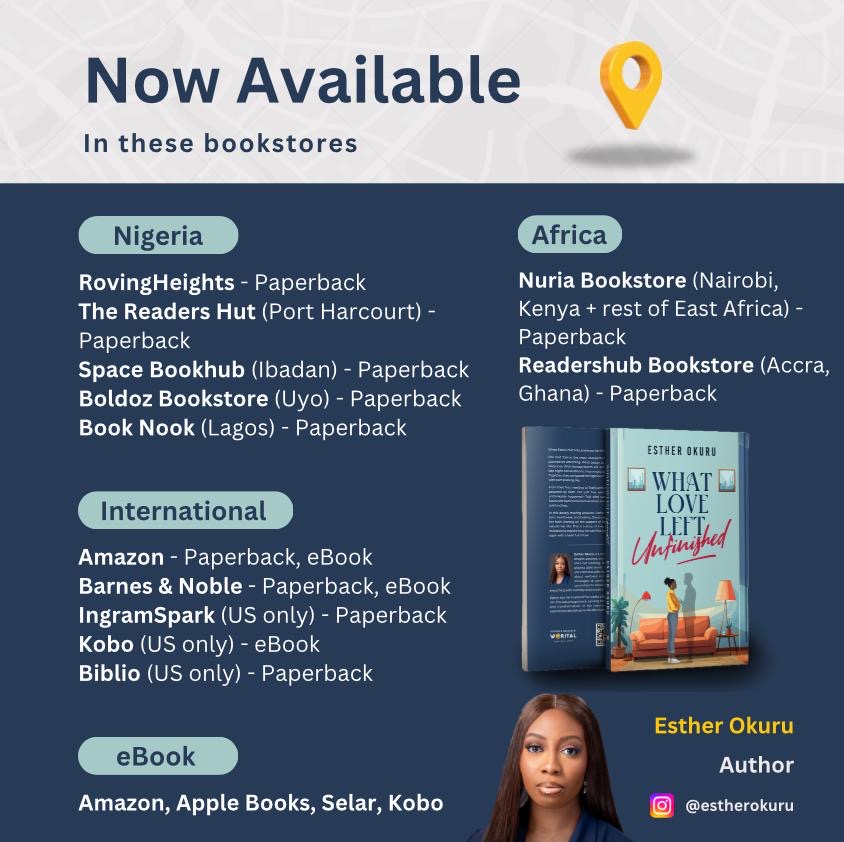

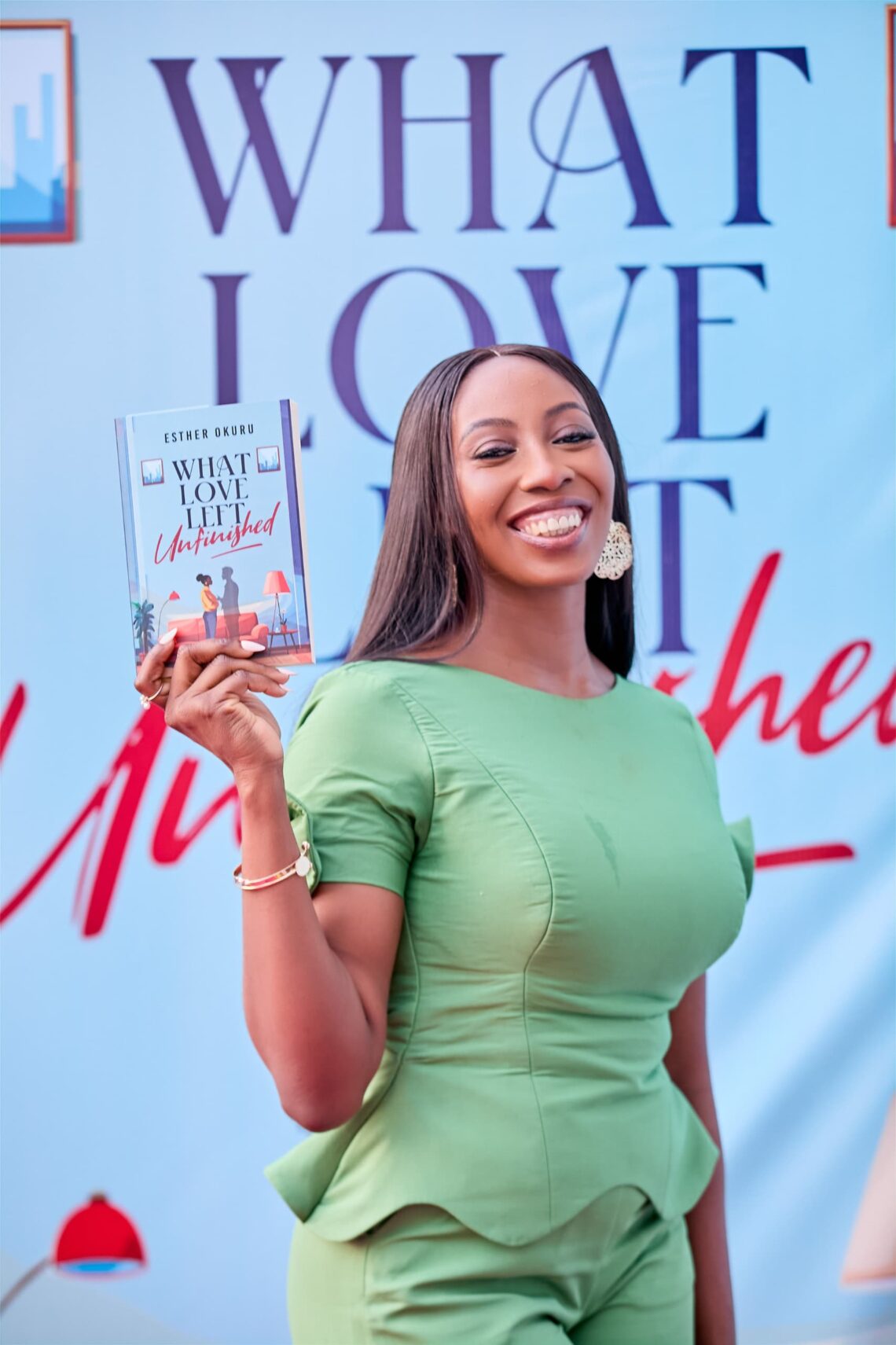
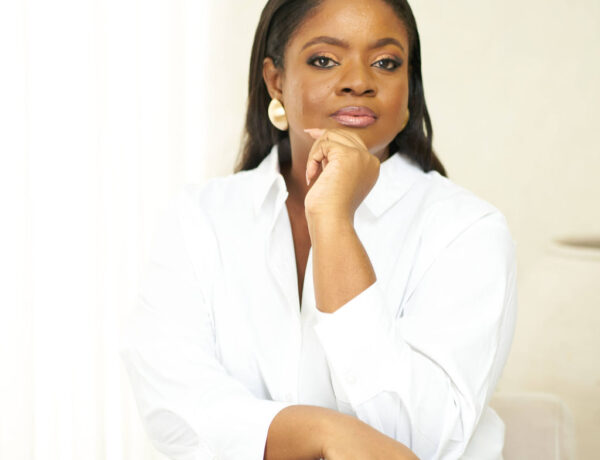
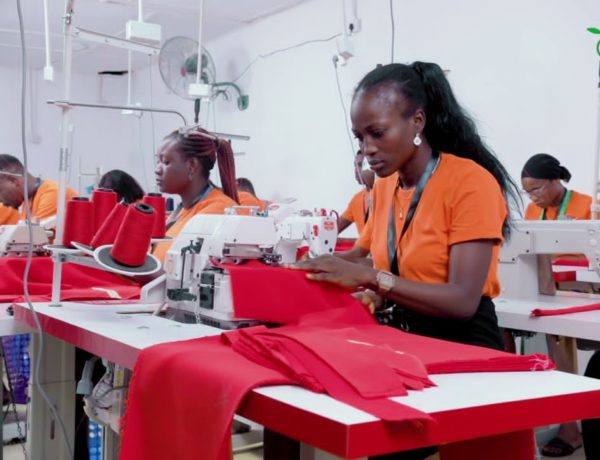

No Comments